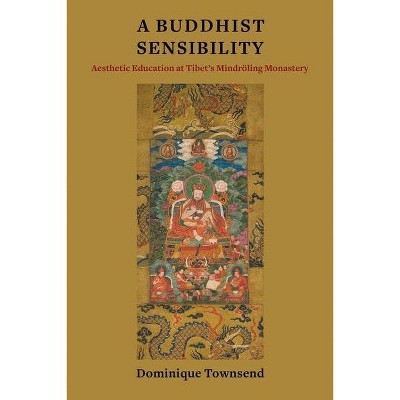The Logic of Japanese Politics - (Studies of the Weatherhead East Asian Institute, Columbia Un) by Gerald Curtis (Paperback)

Similar Products
Products of same category from the store
AllProduct info
<p/><br></br><p><b> About the Book </b></p></br></br><p>Curtis surveys the current state of Japanese politics and predicts what events are likely to transpire in Japan in the coming years. This book offers a unique perspective into Japanese political identity through the lens of its relation to worldwide political systems.</p><p/><br></br><p><b> Book Synopsis </b></p></br></br><p>Widely recognized both in America and Japan for his insider knowledge and penetrating analyses of Japanese politics, Gerald Curtis is the political analyst best positioned to explore the complexities of the Japanese political scene today. Curtis has personally known most of the key players in Japanese politics for more than thirty years, and he draws on their candid comments to provide invaluable and graphic insights into the world of Japanese politics. By relating the behavior of Japanese political leaders to the institutions within which they must operate, Curtis makes sense out of what others have regarded as enigmatic or illogical. He utilizes his skills as a scholar and his knowledge of the inner workings of the Japanese political system to highlight the commonalities of Japanese and Western political practices while at the same time explaining what sets Japan apart.</p><p>Curtis rejects the notion that cultural distinctiveness and consensus are the defining elements of Japan's political decision making, emphasizing instead the competition among and the profound influence of individuals operating within particular institutional contexts on the development of Japan's politics. The discussions featured here--as they survey both the detailed events and the broad structures shaping the mercurial Japanese political scene of the 1990s--draw on extensive conversations with virtually all of the decade's political leaders and focus on the interactions among specific politicians as they struggle for political power.</p><p><em>The Logic of Japanese Politics</em> covers such important political developments as</p><p>- the Liberal Democratic Party's egress from power in 1993, after reigning for nearly four decades, and their crushing defeat in the "voters' revolt" of the 1998 upper-house election;</p><p>- the formation of the 1993 seven party coalition government led by prime minister Morihiro Hosokawa and its collapse eight months later;</p><p>- the historic electoral reform of 1994 which replaced the electoral system operative since the adoption of universal manhood suffrage in 1925; and</p><p>- the decline of machine politics and the rise of the <em>mutohaso</em>--the floating, nonparty voter.</p><p>Scrutinizing and interpreting a complex and changing political system, this multi-layered chronicle reveals the dynamics of democracy at work--Japanese-style. In the process, <em>The Logic of Japanese Politics</em> not only offers a fascinating picture of Japanese politics and politicians but also provides a framework for understanding Japan's attempts to surmount its present problems, and helps readers gain insight into Japan's future.</p><p/><br></br><p><b> Review Quotes </b></p></br></br><br><i>Logic</i> is a fine book, in fact an outstanding one. The jacket blurbs are, for once, right in their enthusiasm...For the Japanese scholar, the detail-oriented reader and anyone who wants an insider's view, written by an outsider, this book has no current peer.--John E. Tropman "Asia Pacific Business Review "<br><br>insightful, comprehensive and impressive...compelling reading....compulsory reading for anyone serious about understanding Japanese politics.--David Walton "Asian Studies Review "<br><br>[A] senior statesman in the field.... Curtis does not shun the complexity and uncertainty of post-1993 Japanese politics, but revels in it. He has produced a remarkable book that presents the political history of the 1990s in its full complexity.--Steven K. Vogel, University of California, Berkeley "Journal of Democracy "<br><br>No American has done a better job of explaining the seemingly inexplicable world of Japanese politics than Professor Gerry Curtis of Columbia. His latest book, his best, is extremely valuable, concise, thoughtful, and very well written.--David Halberstam<br><p/><br></br><p><b> About the Author </b></p></br></br>Gerald L. Curtis is Burgess Professor of Political Science at Columbia University and the former director of the East Asian Institute. He is the author of <i>The Japanese Way of Politics</i> and <i>Election Campaigning Japanese Style, </i> both published by Columbia University Press.
Price History
Cheapest price in the interval: 32.99 on October 28, 2021
Most expensive price in the interval: 32.99 on December 17, 2021
Price Archive shows prices from various stores, lets you see history and find the cheapest. There is no actual sale on the website. For all support, inquiry and suggestion messagescommunication@pricearchive.us




















